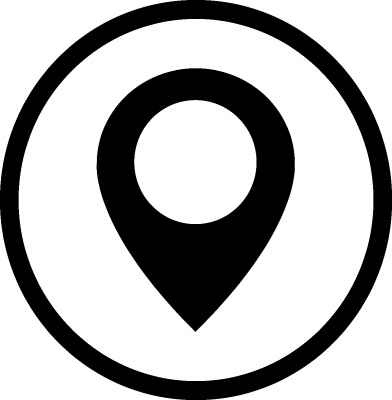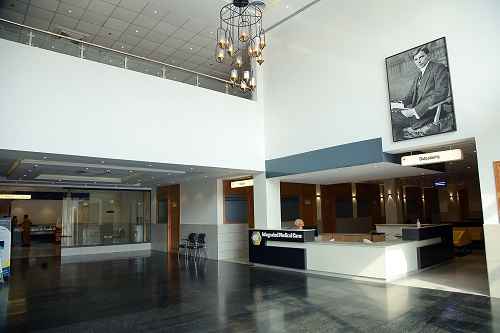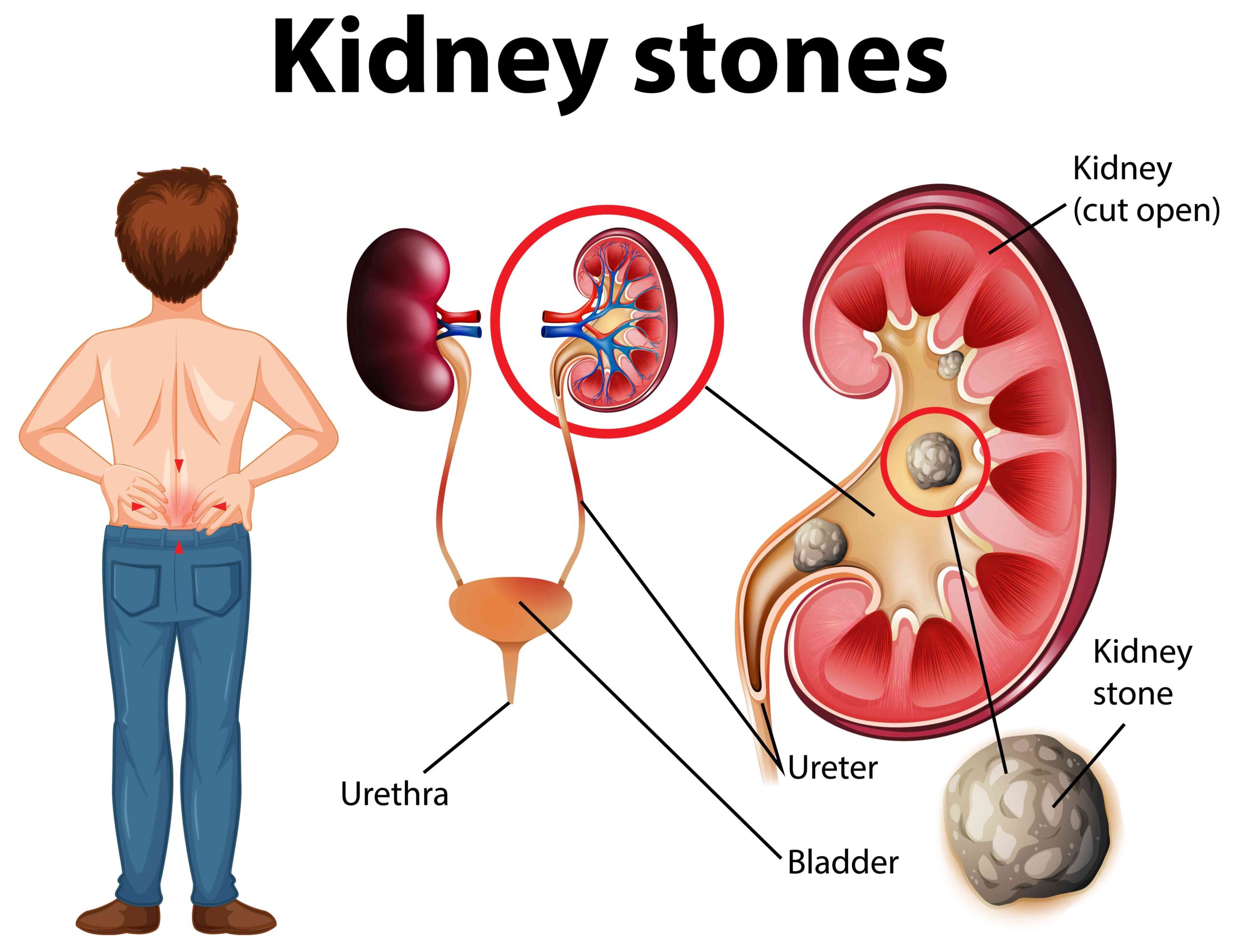- 24-Oct-25
Kidney stones are a common and painful urinary tract disorder that can affect people of all ages. These hard mineral deposits form inside the kidneys and can cause severe discomfort as they move through the urinary tract. Understanding the symptoms, causes, and treatment options for kidney stones can help you take preventive measures and seek timely medical care.
The most common types of kidney stones include:
- Calcium stones – Usually made of calcium oxalate
- Uric acid stones – Prevalent in those with high-protein diets or gout
- Struvite stones – Frequently associated with UTIs
- Cystine stones – Rare, caused by a hereditary disorder.
Kidney Stone Causes:
Kidney stones can develop as a result of several factors:
- Dehydration: Not drinking enough water increases urine concentration.
- Diet: High consumption of foods high in oxalate, protein, or salt.
- Medical conditions: Such as urinary tract infections, hyperparathyroidism, or digestive diseases.
- Family history: Genetic predisposition can increase risk.
- Obesity: Linked to changes in urine composition.
Symptoms of Kidney Stones:
Kidney stones can cause a range of symptoms, depending on their size and location. Common indicators include:
- Severe pain in the side and back (often radiating to the lower abdomen and groin)
- Waves of pain with varying intensities
- Blood in the urine (hematuria)
- Cloudy or foul-smelling urine
- Frequent urge to urinate
- Pain during urination
- Nausea and vomiting
- Fever and chills (if an infection is present)
When to See a Doctor:
Even though little kidney stones can sometimes disappear on their own, it's important to know when medical assistance is needed. If you have severe or ongoing pain that doesn't go away with rest or over-the-counter medicine, you should visit a doctor immediately. Blood in the urine, painful or difficult urination, nausea or vomiting, or fever and chills are other warning symptoms that could point to an infection or obstruction in the urinary system. Delaying treatment can lead to complications including kidney damage or recurrent infections. See your doctor right away for an assessment and treatment if you think you may have a kidney stone or if your symptoms get worse.
Integrated Medical Care Hospital (IMC Hospital):
Integrated Medical Care Hospital (IMC Hospital), in partnership with DHA Lahore, revolutionizes neurological care with advanced techniques, expert surgeons, and a digital healthcare platform for seamless treatment. From minimally invasive procedures to complex surgeries, we ensure precision and patient-focused care. Schedule a consultation today!

 Map
Map










